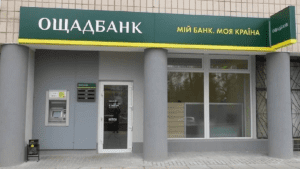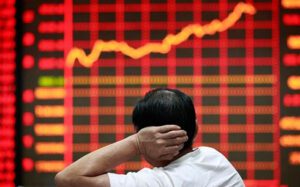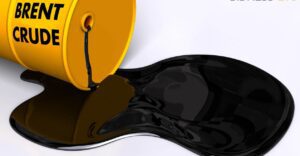
Over the past two weeks, Oschadbank has concluded 149 loan agreements for a total of UAH 547 million under the Affordable Loans 5-7-9% program, the Ministry of Finance reported on its website.
According to the agency, in just two weeks, under this state program, all participating banks issued 247 loans in the amount of UAH 1.43 billion.
According to the Ministry of Finance, during the specified period, FUIB issued 26 additional loans for UAH 193 million, Credit Agricole Bank – 23 loans for UAH 163 million. Raiffeisen Bank – 11 loans for UAH 115 million, state-owned Ukrgasbank – three loans for UAH 12 million, ProCredit Bank – two loans for UAH 5 million, and state-owned Ukreximbank – one loan for UAH 19 million.
The Ministry of Finance clarified that during the period of martial law in Ukraine, 11,986 loans worth UAH 40.6 billion were concluded within the framework of the state program “Affordable loans 5-7-9%”, 44 banks participate in the program.
In total, since the start of the program on September 12, companies have received 46.808 thousand loans from authorized banks for a total of UAH 138.22 billion, of which 30.031 thousand from state-owned banks for UAH 54.4 billion.
Despite the absence of new loans in recent weeks from PrivatBank, it remains the leader in terms of the number and volume of issued financing – 19.39 thousand loans for UAH 19.67 billion. It is followed by Oschadbank – 6.67 thousand for UAH 19.67 billion and UAH 16.08 billion, respectively.
The top five also includes Raiffeisen Bank – 4.09 thousand loans for UAH 18.55 billion, state-owned Ukrgasbank – 3.18 thousand for UAH 11.74 billion and FUIB – 2.57 thousand for UAH 15.49 billion. In the second five – ProCredit Bank – 2.23 thousand for UAH 9.94 billion, Kredobank – 1.52 thousand for UAH 5.84 billion, Credit Agricole Bank – 1.4 thousand for UAH 8.28 billion, OTP The bank – 0.81 thousand for UAH 4.91 billion and the state-owned Ukreximbank – 0.79 thousand for UAH 6.36 billion.

JSC Ukrgazvydobuvannia has resumed the work of two previously stopped wells in Poltava region with a production capacity of 250,000 cubic meters per day, the company said in the Telegram channel on Monday.
“Specialists of Ukrgazvydobuvannia resumed the life of two wells that had previously stopped producing gas due to the depletion of gas-bearing horizons. Now, after an overhaul, we are extracting about 250,000 cubic meters of gas per day from them,” it informed.
As the company explained, in order to resume the work of wells, the specialists of Ukrgazvydobuvannia decided to use other promising horizons, for which they replaced old worn-out pipes and perforated them.
Both workover operations were performed by the internal service contractor UGV-Service.
“Despite the danger and difficulties with logistics and the provision of necessary materials, the employees of the branch continue to perform both basic repairs and highly complex operations to remove emergency equipment, prepare for hydraulic fracturing operations and test wells after development and exploratory drilling,” Ukrgazvydobuvannia said.
Thanks to an overhaul at one of the mentioned wells, an opportunity has also opened up to increase gas reserves that were not previously taken into account.
As reported, in January-June 2022 Ukrgazvydobuvannia reduced the supply of commercial gas by 1.5% compared to the same period in 2021, to 6.31 billion cubic meters.

Stock indices of Japan and Australia rose at the auctions on Monday, following the US stock market, which confidently strengthened at the end of last week.
At the same time, the exchanges of China, Hong Kong and South Korea were closed. China celebrates the autumnal equinox, while Korea celebrates Chuseok.
American stock indexes closed trading on Friday with active growth, ending the first week of the last four in positive territory. Investors followed the statements of the world’s central banks and signals about global inflation.
This week, market participants are waiting for data from the US Department of Labor on the dynamics of consumer prices in August, which will be published on Tuesday, as well as data on industrial production, retail sales and capital investment in China in August, which will be released on Friday.
Meanwhile, outbreaks of coronavirus in China and the restrictive measures introduced in connection with them remain a cause for concern, writes MarketWatch.
The Japanese Nikkei 225 closed up 1.16%. The indicator reached its maximum value in two weeks.
The growth leaders among the components of the index are the shares of retailer Isetan Mitsukoshi Holdings Ltd (+4.7%), providing online medical services M3 Inc. (+3.9%) and rail and bus operator Keisei Electric Railway Co. (+3.6%).
Asia’s largest clothing retailer Fast Retailing rose 2.3%, while automaker Nissan Motor Co. – by 2.45%.
The Australian S&P/ASX 200 rose 1.02%.
The market value of the world’s largest mining companies BHP and Rio Tinto increased by 3.5% and 1.8%, respectively.
Commonwealth Bank of Australia rose 0.8%, Westpac Banking Corp. – by 1.04%, Australia & New Zealand Banking Group Ltd. – by 1.35%.

Stock indices of Western European countries are rising during trading on Monday.
The composite index of the largest companies in the region Stoxx Europe 600 by 12:19 Moscow time increased by 0.96% and amounted to 424.39 points.
The German DAX rose 1.7%, the French CAC 40 rose 1.32%, and the British FTSE 100 also rose 1.32%. The Italian FTSE MIB and the Spanish IBEX 35 gained 1.91% and 1.29% respectively.
The focus of traders this week is US inflation data for August, which will be carefully assessed by the Federal Reserve System (Fed) during the September meeting. The indicator will be published by the US Department of Labor on Tuesday at 15:30 Moscow time.
Experts, however, consider it unlikely that even in the event of a weakening of August inflation, the Fed will refuse another rate hike by 75 basis points (bp) in September, Bloomberg notes. Last week, US Central Bank Governor Jerome Powell reaffirmed the Fed’s readiness to “act decisively” to slow down US consumer price growth.
Meanwhile, the European Central Bank (ECB) raised all three key interest rates by 75 bps last week. and stated that he intended to continue to increase them in the next few meetings.
The volume of industrial production in the UK in July unexpectedly fell by 0.3% compared with the previous month, official statistics showed. A month earlier, the figure fell by 0.9%. Analysts had expected it to rise 0.4% in July, according to Trading Economics.
UK exports in July 2022 were down 4.2% from the previous month to £61.05 billion, according to data from the National Statistics Office (ONS). Imports fell 1.6% to £68.84 billion.
The UK foreign trade deficit narrowed to £7.8bn in July from £11.4bn a month earlier. This is the lowest figure since last December.
Shares of Deutsche Lufthansa AG rise in price by 2.6%. The German airline has entered into an agreement with the trade union Vereinigung Cockpit to raise the salaries of pilots.
Electrolux AB drops 0.6%. The Swedish company, one of the world’s largest home appliance manufacturers, is launching a cost-cutting program amid weaker-than-expected market demand and underwhelming third-quarter results.
Among the growth leaders among the components of the Stoxx Europe 600 indicator are shares of the German energy company Uniper SE, which are rising in price by 7.1%.

The oil market opened the week with a decrease amid tightening quarantine restrictions in China, which increased the pessimism of traders regarding the prospects for demand for fuel.
Market participants are also evaluating the potential consequences of introducing a cap on Russian oil prices. On Friday, it became known that the G7 countries intend to set a price ceiling for oil from the Russian Federation from December 5, for oil products – from February 5.
November Brent futures on London’s ICE Futures are trading at $91.45 per barrel by 8:15 a.m. on Monday, $1.39 (1.5%) lower than the closing price of the previous session. As a result of trading on Friday, these contracts rose by $3.69 (4.1%) to $92.84 per barrel.
The price of futures for WTI oil for October in the electronic trading of the New York Mercantile Exchange (NYMEX) is $85.3 per barrel by this time, which is $1.49 (1.72%) lower than the final value of the previous session. By the close of the market on Friday, the value of these contracts increased by $3.25 (3.9%) to $86.79 per barrel.
As a result of the past week, the cost of Brent fell by 0.2%, WTI – by 0.1%.
“It seems that expectations of weakening oil demand are coming to the fore, given the fears of a recession in the world and a delay in quarantine restrictions in China,” said oil and gas analyst RHB Investment Bank Bhd. Sean Lim, quoted by Bloomberg.
The lockdown is currently in effect in Chengdu, home to 21 million people, as well as parts of Guiyang City and at least one university campus in Beijing.
The US Treasury Department’s Office of Foreign Assets Control (OFAC) on Friday issued recommendations to insurance and financial companies regarding the implementation of the price cap initiative for Russian oil. In particular, these companies will need to obtain evidence that oil was purchased at a price below a certain level before insuring tankers.
Structure of import of services in 2021 (graphically)

SSC of Ukraine